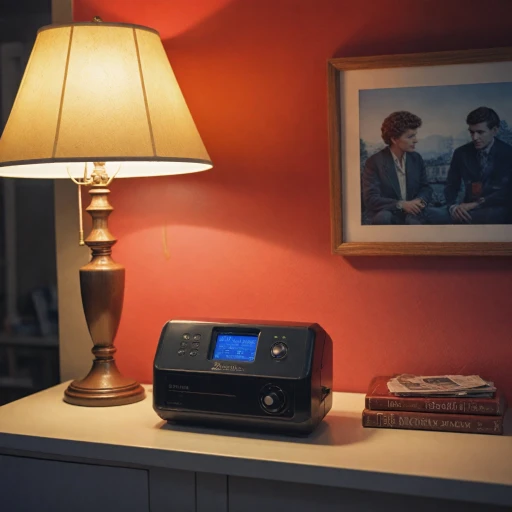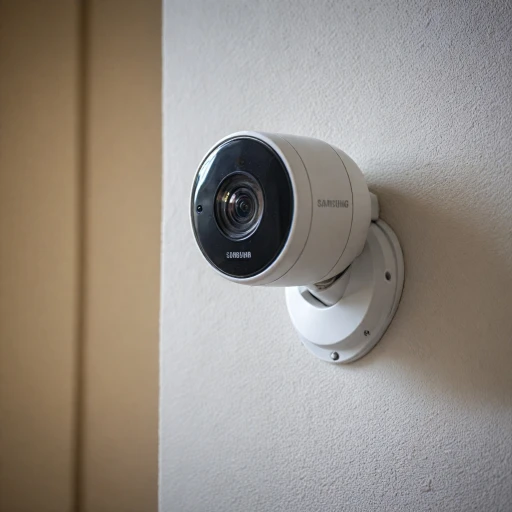
Understanding Driveway Alarms
Understanding the Basics of Driveway Alarms
Driveway alarms are a pivotal part of home security systems, offering an extra layer of protection by detecting motion and alerting homeowners to activity in their driveways. Essentially, these systems function through a combination of sensors and receivers that communicate wirelessly. A driveway alarm system typically includes the following components:- Motion Sensors: Positioned strategically, these detect movement from vehicles or individuals entering the driveway. Sensors can vary in their detection range and often incorporate technologies such as infrared, magnetic, or ultrasonic.
- Wireless Transmitter: Connected to the sensor, this transmits a signal to the receiver when motion is detected. Being wireless, they offer flexibility in installation and ease of use.
- Receiver: Located inside the home, the receiver alerts the homeowner through sound or visual signals. The range between the sensor's wireless transmitter and the receiver is critical and varies between products, from short-range to long-range capabilities.
- Alert Systems: These systems deliver the actual alert to the homeowners. They vary from simple chimes to more sophisticated alarms that trigger other security responses.
Key Features to Look for in a Driveway Alarm
Essential Features for Optimal Performance
When selecting a driveway alarm, understanding the key features can significantly enhance your security setup. Here are some critical aspects to consider:
- Wireless Capability: A wireless driveway alarm system offers flexibility in installation and reduces the need for extensive wiring. Look for systems with a reliable wireless transmitter and receiver to ensure seamless communication.
- Range: The range of the alarm system is crucial, especially for larger properties. Long-range wireless systems can cover extensive areas, ensuring that you receive alerts even from a distance.
- Motion Sensor: A high-quality motion sensor is vital for detecting movement. Consider systems with adjustable sensitivity to minimize false alarms from small animals or weather conditions.
- Alert System: The alert mechanism should be robust, providing clear notifications when the sensor is triggered. Options include audible alarms, visual indicators, or notifications sent directly to your smartphone.
- Detection Technology: Some systems use magnetic probes or infrared sensors to detect vehicles, enhancing accuracy. Magnetic probes are particularly effective for detecting metal objects, such as cars.
- Durability: Ensure the product is weather-resistant, especially if it will be exposed to harsh conditions. A durable alarm kit will provide reliable service over time.
- Power Source: Consider solar-powered options for eco-friendly and low-maintenance operation. These systems can be more sustainable and cost-effective in the long run.
- Price: While it's essential to consider your budget, remember that investing in a quality system can save you money and stress in the future.
By focusing on these features, you can select a driveway alarm that meets your specific needs and integrates seamlessly with your existing security measures. For more insights on enhancing your home security, consider exploring dusk-to-dawn light sensors as an additional layer of protection.
Integrating Driveway Alarms with Security Cameras
Maximizing Security by Merging Systems
Integrating driveway alarms with security cameras forms a robust security framework that enhances the protection of your property. When a driveway alarm’s wireless sensor detects motion—be it a vehicle or foot traffic—it triggers an alert system. By pairing this alert with a camera view, property owners can obtain real-time visuals of the detected event, adding a significant layer to their security strategy.
Choose a comprehensive driveway system that supports wireless connectivity. This way, the system efficiently connects with your existing security cameras without the need for complex cabling. A Dakota alert system, for instance, offers models with a long-range wireless receiver that can communicate with multiple sensors and cameras over substantial distances.
Most driveway alarms offer a range of signal-alert options. Some products, like magnetic motion sensors and wireless transmitters, are designed specifically to integrate seamlessly with alarm kits and security cameras. This synergy provides prompt notifications and visual confirmation of potential intrusions directly to your mobile device or home security base station, as explained in the "security base station" guide.
A tailored integration approach guarantees not just an effective alert system, but a comprehensive surveillance solution that is responsive and reliable—crucial in maintaining peace of mind for homeowners.
Installation Tips for Driveway Alarms
Effective Setup for Enhanced Security
When it comes to installing a driveway alarm system, ensuring a comprehensive setup maximizes security. Here are some crucial considerations for a smooth installation process:- Identify Optimal Sensor Placement: Position the motion sensor to cover key entry points of the driveway where vehicles might pass or park. Consider using a magnetic probe for enhanced vehicle detection, especially if interference from environmental factors is a concern.
- Ensure Clear Line of Sight: For wireless systems, it's essential that the sensors and the receiver have a clear line of sight to maintain a stable communication range. This is particularly crucial in long range configurations where obstacles might weaken the signal.
- Power Source Considerations: Assess whether a solar powered option could benefit your setup, providing sustainable energy to the alarm system, reducing the need for constant battery replacements.
- Integration with Existing Systems: Effectively linking your driveway alarms with existing security systems ensures all components function optimally. This integration allows for centralized monitoring through a single interface or app.
- Testing and Calibration: Once installed, thoroughly test the entire system. Adjust the sensitivity of the motion sensor and receiver to avoid false alerts while ensuring reliable detection throughout your driveway.
- Secure Installation Components: Whether using Dakota Alert or other brands, make sure each product is securely mounted to prevent tampering while providing durability against harsh weather conditions.
Common Challenges and Solutions
Troubleshooting and Overcoming Common Issues
When it comes to ensuring the smooth operation of your driveway alarm and maintaining an efficient security system, you might encounter some challenges. Here are a few common problems, and how you can effectively solve them:- Signal Interference: Wireless driveway alarms can occasionally experience interference from other devices operating on similar frequencies. To mitigate this, ensure that your alarm system operates on a protected frequency range, minimizing overlap with other household wireless devices.
- Limited Detection Range: If your alarm system isn’t covering the full desired area, consider using a driveway alarm with a long-range wireless feature. To enhance detection, ensure that motion sensors are installed with a clear view and are not obstructed by obstacles like trees or walls.
- Power Issues: A common issue with wireless transmitters can be power failure. Opting for solar-powered units or regularly checking the battery life can prevent unexpected outages. Keep extra batteries within the alarm kit and replace them periodically.
- False Alerts: Instances of false alarms can arise from environmental elements (e.g. swaying trees, animals). Adjust the sensor’s sensitivity settings and use magnetic sensors to detect metallic objects such as vehicles for more precise alerts.
- Installation Challenges: Improper installation can lead to misalignment or limited performance. Follow the manufacturer’s instructions carefully during setup. It may be helpful to consult video tutorials or hire a professional to set up complex systems.
Choosing the Right Driveway Alarm for Your Needs
Finding the Ideal Driveway Alarm for Your Home
Selecting the right driveway alarm can be a daunting task with so many options available. However, by focusing on specific features and requirements, you can simplify this process. Consider the following aspects when examining driveway alarms:
- Wireless Technology: Opt for a wireless driveway alarm system that facilitates easy installation and flexible placement of sensors around your property. Look for systems that use advanced wireless transmitters for increased reliability.
- Sensor Type: Identify the type of sensor that suits your needs. Magnetic sensors and motion sensors each have their own advantages, with magnetic probes focusing on metallic vehicles and motion sensors detecting movement.
- Range: Evaluate the range between the sensors and the receiver. Long-range wireless systems, for example, those by Dakota, are ideal for large properties. Ensure the system meets your coverage needs.
- Alert System: Check the alert options available. A versatile alert system will allow you to customize the types of alerts you receive, such as audible alarms or mobile notifications.
- Power Source: Consider whether a solar-powered system is viable for your location, or if battery-operated systems suit your preferences, especially in areas with limited sunlight.
- Price: Balance your budget with the features you require. While more comprehensive products may come with a higher price tag, they often provide additional security benefits.
- Installation: Assess the complexity of installation. Some systems are designed with DIY users in mind, while others may require professional installation for optimal performance.
Deciding on the best product for your circumstances involves weighing all these factors against your specific security needs. With the right driveway alarm system in place, you'll add an extra layer of security, ensuring peace of mind for you and your family.













